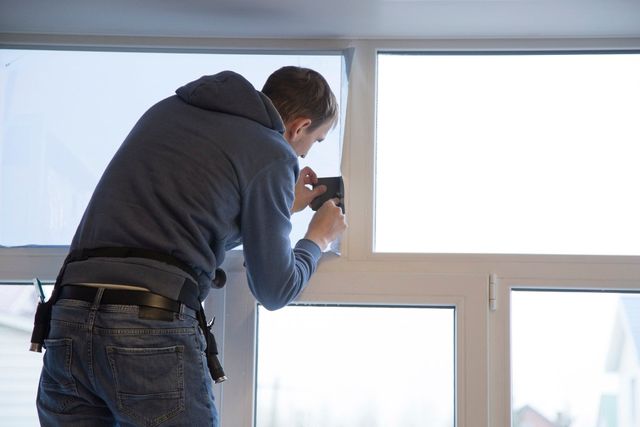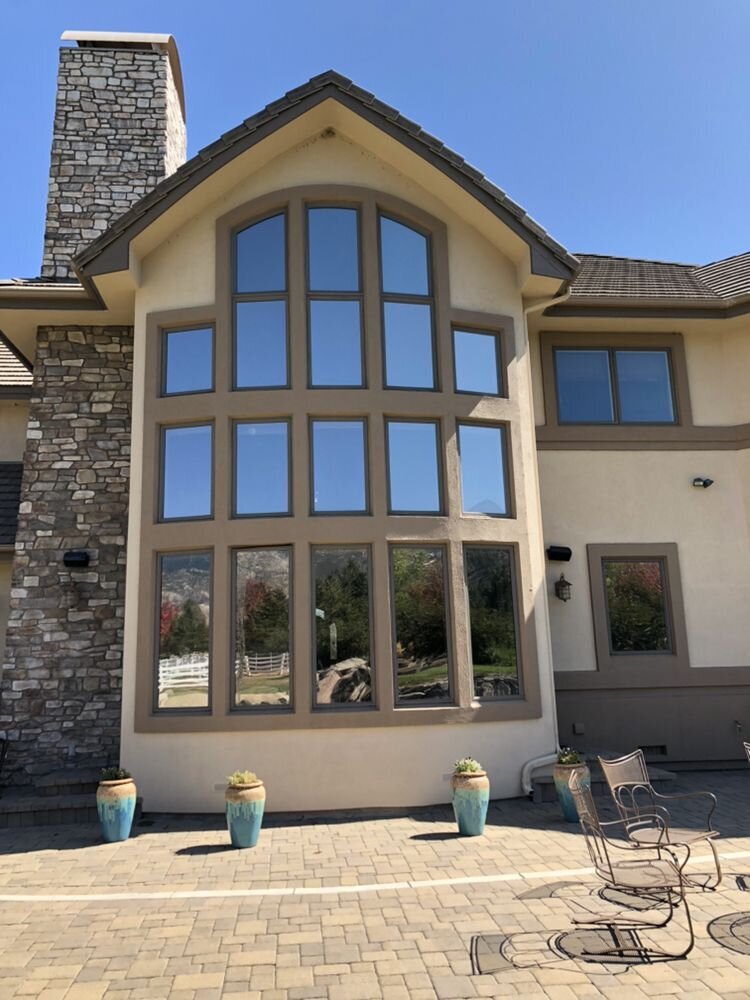Residential Window Tint: Maintain Your Home Comfortable Year-Round
Residential Window Tint: Maintain Your Home Comfortable Year-Round
Blog Article
How Residential Home Window Tinting Improves Your Home's Power Efficiency
Residential window tinting offers a compelling option for house owners looking for to boost power performance within their living rooms. By applying specialized movies to windows, it successfully decreases heat transfer, consequently stabilizing interior temperatures and decreasing the requirement for excessive home heating or air conditioning.
Recognizing Home Window Tinting
Recognizing home window tinting is vital for home owners looking for to enhance both comfort and energy efficiency in their home. Residential Window Tint. Home window tinting entails the application of a thin movie to the inside or outside surface of glass home windows. This movie can considerably modulate the quantity of sunshine and warm that goes into a home, hence affecting interior climate problems
There are numerous kinds of window tinting movies offered, each with unique residential or commercial properties. The efficiency of window tinting is usually determined by its Visible Light Transmission (VLT) percentage, which suggests exactly how much light can pass via the movie.
Benefits of Power Efficiency
Window tinting not just enhances aesthetic appeals however also plays a considerable function in boosting energy performance within household areas. By decreasing heat transfer through windows, tinted movies create a more stable indoor environment, which can lead to significant reductions in power usage for heating & cooling. This energy effectiveness converts right into reduced utility costs, supplying property owners with considerable long-lasting cost savings.

Furthermore, window tinting enhances the convenience of living spaces. By minimizing glare and obstructing harmful UV rays, colored home windows create an even more pleasant setting, which can lead to improved health for owners. The protection against UV rays likewise aids maintain furniture and floor covering from fading, adding to the long life of household products.
Exactly How Tinting Functions
Tinting movies run with a combination of sophisticated materials and technologies created to regulate the amount of solar power getting in a home. Primarily composed of polyester, these films usually integrate ceramic or metal fragments that reflect and soak up warm. This dual capacity permits them to significantly reduce the penetration of ultraviolet (UV) rays and infrared radiation while allowing noticeable light to travel through.
The performance of window tinting is measured by its solar warm gain coefficient (SHGC), which suggests how much solar power is sent via the window. Lower SHGC values are preferable as they denote better warmth being rejected. Additionally, window tints can include a selection of tones, enabling property owners to customize their visual preferences while enhancing power performance.
In addition, these movies function as an obstacle, protecting against warm loss during cooler months by showing indoor warmth back right into the home. This thermal insulation impact matches the air conditioning benefits gotten throughout warmer months, adding to a balanced indoor climate year-round. By taking care of solar power successfully, household home window tinting not just enhances convenience yet also plays a crucial role in minimizing power consumption and reducing utility expenses.
Selecting the Right Color

There are different types of window films offered, consisting of colored, metalized, and ceramic. Dyed films are cost-efficient yet may have restricted sturdiness. Metalized films use better warmth denial but can hinder electronic signals. Ceramic films offer outstanding warm control without endangering presence and are very durable, making them a popular option.
Noticeable light transmission (VLT) is an additional crucial element, as it indicates the amount of all-natural light that can travel through the colored glass. Home owners ought to pick a tint with a click over here VLT that complements address their lights preferences while still supplying adequate glare decrease.
In addition, examining the solar heat gain coefficient (SHGC) can assist figure out exactly how well a tint can block heat from sunshine. A reduced SHGC indicates far better warm control, ultimately boosting power performance.
Installation and Upkeep Tips
Correct setup and maintenance are essential parts in making the most of the benefits of household home window tinting. To achieve optimum outcomes, it is advisable to hire a qualified professional for setup. This makes sure that the tint is applied properly, preventing air bubbles, creases, or misalignment that might compromise efficiency. Specialists additionally use specialized devices and strategies, which can improve the resilience and performance of the color.
Complying with setup, maintenance is important to lengthen the life of the window movie. It is suggested to wait at least 30 days prior to cleaning up the tinted windows to permit the glue to treat fully.
In addition, normal assessments are useful. Check for any type of peeling or bubbling, which might suggest improper installment or put on in time - Residential Window Tint. Addressing these problems promptly can protect against further damage and maintain power effectiveness. By sticking to these installation and maintenance suggestions, property owners can ensure their window tinting remains to give significant energy savings and comfort for years ahead.
Final Thought
In final thought, residential window tinting serves as an efficient option for boosting power performance within homes. By decreasing warm transfer and blocking hazardous UV rays, home window films contribute to reduce power intake and improved indoor comfort.
Window tinting includes the application of a slim film to the interior or exterior surface area of glass windows. By decreasing warm transfer with windows, colored movies develop an extra steady interior climate, which other can lead to substantial decreases in energy intake for home heating and air conditioning.The efficiency of home window tinting is measured by its solar heat gain coefficient (SHGC), which suggests exactly how much solar power is transmitted through the window. By managing solar energy effectively, property window tinting not just enhances convenience but likewise plays an essential role in decreasing power consumption and lowering energy bills.
By lowering heat transfer and obstructing unsafe UV rays, window films add to decrease energy usage and enhanced interior comfort.
Report this page